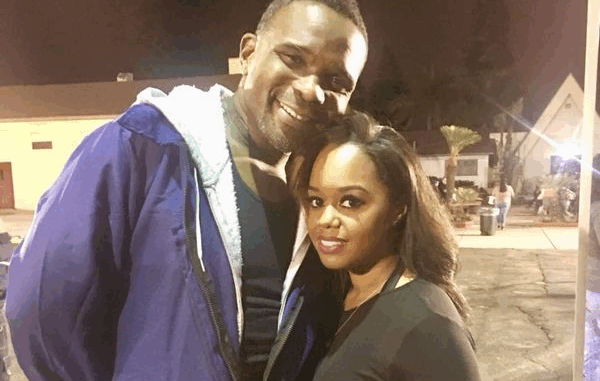
Have you ever watched a TV show and wondered, “Hey—what happened to that character?” If you grew up watching the ’90s sitcom Family Matters, you likely asked that exact question when the youngest Winslow daughter, Judy Winslow, vanished from the show without any formal goodbye. And now, actor Jaleel White has finally spoken about what really went down behind the scenes. In this deep dive, we’ll unpack the reasons, the rumors, the production decisions, and the personal dynamics that led to Judy’s disappearance—and why it still fascinates fans decades later.
1. Recognizing the Judy Winslow Mystery
Judy Winslow was one of the central children in the Winslow family on Family Matters. She appeared regularly early on, but by Season 4 her presence on screen started to shrink—and then she was gone. The curious thing? The show never formally addressed her departure. No exit story, no “moving away,” no show-within-the-show explanation. It simply happened. That mystery built up over time, becoming one of TV’s most discussed character disappearances.
2. When the Spotlight Shifted
As Family Matters progressed, the spotlight increasingly gravitated toward Steve Urkel, played by Jaleel White. The comedic hijinks of Urkel became central to the show’s identity. That shift meant other characters—like Judy—received fewer storylines and less focus.
In production terms, that created a kind of redundancy: if a character has fewer scenes, jokes, or arcs, they may become expendable.
3. Jaleel White Breaks His Silence
In a recent candid interview, Jaleel White finally addressed Judy’s exit. He revealed that “there were a multitude of factors that went into her departure … but I blame it all on her mom.” He elaborated that Judy’s real-life mother played a major role in the decision to write her out.
According to White, the reasons included the character lacking storylines, the actress not always hitting comedic marks in rehearsals, and cost and budget decisions by the production team. He explained that “they weren’t giving her storylines, and she wasn’t the best at delivering a joke.”
4. Behind the Scenes: Performance and Production Realities
What does “not the best at delivering a joke” mean in a sitcom environment? For a show built on comedic timing, rehearsals and live audience feedback matter. White claimed that scenes with Judy occasionally fell flat in run-throughs, and such patterns influence producers.
On top of that, budgeting was cited as a factor: if a character no longer fits into the evolving storyline, the production often cuts costs by reducing cast size. When you combine diminished screen utility, financial pressure, and performance inconsistency, the decision to drop a character becomes more understandable—though still controversial.
5. The Role of the Actress’s Mother
One of the more sensitive parts of this story is that White placed significant responsibility on Judy’s mother, saying, “It was all on her mom.” That implies parental management issues, demands, or disagreements behind the scenes.
While we don’t have a full independent verification of all those claims from the actress or her mother, White’s version is the one that’s been publicly shared. Regardless of perspective, this statement added a new layer to a decades-long mystery.
6. Creative Shifts: Why the Character Became Optional
When Family Matters first launched, the ensemble focused on the Winslow family—Carl, Harriette, Eddie, Laura, and Judy. But as Steve Urkel exploded in popularity, storylines skewed heavily toward him. Producers likely asked themselves, “Do we still need Judy when Steve is carrying so much of the show’s appeal?”
White explained that “she wasn’t adding to the storylines, so they let it go.” Sometimes television isn’t just about talent—it’s about usefulness. If a character becomes redundant, the business side takes over.
7. The Impact on Actress Jaimee Foxworth
The role of Judy was played by a young actress named Jaimee Foxworth. Her departure from the show left her with fewer acting credits and a lasting “Where did Judy go?” question following her career.
This kind of early career disruption can affect young actors deeply—emotionally, professionally, and financially. It’s a classic example of how the entertainment industry can abruptly change a performer’s trajectory.
8. The Fan Reaction and Pop-Culture Memes
Because Judy’s exit was so abrupt and unexplained, it spawned endless memes, fan theories, and trivia lists. “Top 10 TV character disappearances” often includes Judy Winslow. That cultural resonance means the story stayed alive long after the show ended.
So ironically, the decision to drop the character created brand value for Family Matters—just not the kind the producers might have expected.
9. The Legacy of Steve Urkel vs. Judy Winslow
It’s worth contrasting: Steve Urkel became the iconic character, while Judy became the forgotten one. Why? Because Steve got storylines, merchandise, and catchphrases. Judy got less and less. That shift reveals the harsh reality of television: the character who sells becomes the character who stays.
White’s candid comments highlight that imbalance and the power dynamics in production rooms.

10. Why This Story Still Matters Today
This isn’t just a nostalgic footnote. The Judy Winslow case raises questions about child actors, parental management, creative control, and fairness—topics that are still relevant today.
It also exposes the lack of transparency in entertainment industries: why characters vanish, what decisions are made quietly, and who holds the real power. It’s a small story that reflects much bigger issues.
11. Lessons for Actors, Parents, and Producers
-
For young actors: Always have strong representation and understand your role’s trajectory.
-
For parents: Find balance between protecting your child and managing expectations professionally.
-
For producers: Remember that fans notice character treatment—abrupt removals can hurt credibility.
-
For fans: Understanding what happens behind the screen adds depth to your love for a show.
12. Alternate Theories and Unanswered Questions
While White’s version is the most detailed, there’s never been a unified story from the actress or the production team that completely aligns. Some theories mention schooling conflicts, scheduling issues, or creative differences.
What we do know is that the show never replaced Judy or wrote her a farewell scene. That silence left fans speculating—and that speculation became television legend.
13. The Joke That Became a Symbol
One of the most quoted jokes about Judy’s exit is, “She went upstairs and never came down.” It symbolizes how unceremonious the departure was. That moment became shorthand for any character who vanishes from a show without explanation.
It’s funny—but also a bit haunting. A member of the Winslow family disappeared, and the show never looked back.
14. Jaleel White’s Reflections in His Memoir
In his memoir Growing Up Urkel, Jaleel White reflects on the pressures of being a breakout star and the behind-the-scenes struggles of being part of a long-running sitcom. He also addresses the management and production issues that often complicate child actors’ experiences.
It’s clear from his reflections that the Judy Winslow situation wasn’t just a creative decision—it was a mix of performance, management, and production politics.
15. Final Thoughts: A Story of Talent, Timing, and Television Politics
The story of Judy Winslow’s exit from Family Matters is more than a quirky bit of TV trivia—it’s a window into how creative industries make difficult decisions. Jaleel White’s willingness to speak about it finally sheds light on what really happened.
As fans, it’s easy to laugh at the idea of a character “going upstairs and never returning,” but behind that joke lies a young actress, a family, and a set of circumstances that changed the course of her career. It’s a story of timing, talent, and the tough business of television.
Conclusion
So now you know the real story behind Judy Winslow’s disappearance from Family Matters. It wasn’t simply bad writing or a random choice—it was a combination of shifting storylines, industry politics, performance factors, and parental influence. Jaleel White’s openness gives fans a glimpse behind the curtain, showing that even the most beloved sitcoms have complex realities. Next time someone asks, “What happened to Judy Winslow?” you’ll know the truth—she didn’t just vanish; she became part of TV history.
FAQs
1. Why did Judy Winslow really leave Family Matters?
According to Jaleel White, Judy’s departure resulted from fewer storylines, performance issues, budget considerations, and her mother’s involvement in behind-the-scenes decisions.
2. Was Judy Winslow ever replaced?
No. The show simply phased her out and never mentioned her again, making her exit one of the most abrupt in TV history.
3. Did Jaimee Foxworth ever speak about her exit?
Jaimee Foxworth has discussed her later life in interviews but has not publicly offered a detailed explanation that directly counters or confirms Jaleel White’s account.
4. Did Steve Urkel’s success cause Judy’s role to shrink?
Yes. As Urkel became the breakout star, the show’s focus shifted toward him, reducing the importance of other family members like Judy.
5. What can modern TV shows learn from this?
Modern productions can learn the importance of transparency with fans, better communication with actors, and thoughtful story continuity—even when a character leaves unexpectedly.
